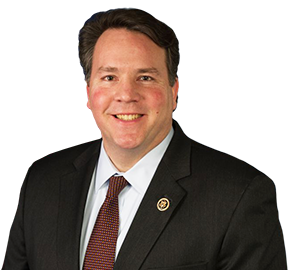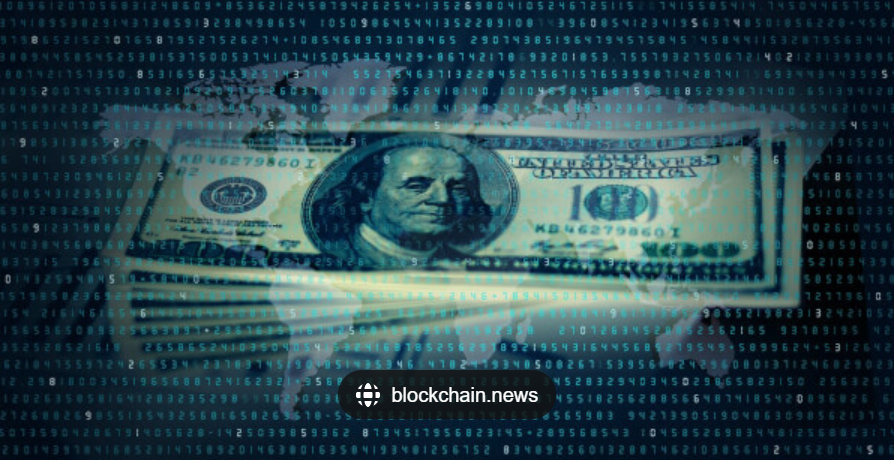WASHINGTON, DC – Rep. Alex X. Mooney introduced H.R. 3712, the Digital Dollar Pilot Prevention Act to close the Federal Reserve’s Central Bank Digital Currency (CBDC) pilot program loophole. Specifically, this bill would prohibit the Federal Reserve from establishing, carrying out, or approving a program intended to test the practicability of issuing a CBDC.
14 House Republicans signed onto the bill as original cosponsors: Pete Sessions, Bill Posey, Ralph Norman, Byron Donalds, John Rose, Andy Ogles, Jeff Duncan, Greg Steube, Randy Weber, Glenn Grothman, Ronny Jackson, Victoria Spartz, Harriet Hageman, and Bob Good.
This legislation is endorsed by Club for Growth, Heritage Action, FreedomWorks, Americans for Tax Reform, and American Blockchain Initiative.
“Congress cannot give an inch when it comes to CBDCs. CBDCs would threaten the liberties of law-abiding Americans and are being used by authoritarian countries right now to crack down on dissent.” said Rep. Alex X. Mooney. “That’s why closing this pilot program loophole is so important—to prevent the Federal Reserve from bypassing the will of Congress. I am proud to introduce this legislation to do exactly that.”
“The Federal Reserve should never develop a Central Bank Digital Currency (CBDC). Moreover, spending time and taxpayer resources on research or pilot programs would be an end-around on Congressional intent, authorization, or jurisdiction. The Federal Reserve should be focused on fulfilling its formal mandate of taming Bidenflation, not mimicking China.” David McIntosh, President, Club for Growth
“The Biden administration’s calls for Central Bank Digital Currencies is another authoritarian measure to restrict and monitor Americans’ spending habits. FreedomWorks applauds Rep. Mooney’s efforts to introduce legislation that would bar the Federal Reserve from establishing any CBDC pilot programs without an act of Congress. We must do everything we can to prohibit unelected bureaucrats from inflicting their inflationary and repressive policies on the American taxpayer.” – Adam Brandon, President and CEO, FreedomWorks
“A central bank digital currency poses significant risks to the U.S. economy. A CBDC has the potential to infringe on privacy, abuse tax enforcement, and crowd out privately issued cryptocurrencies,” said Grover Norquist, President of Americans for Tax Reform. “There are no market failures that necessitate the study or creation of a CBDC. That is why I am proud to support Rep. Alex Mooney’s Digital Dollar Pilot Prevention Act, which would prohibit the Federal Reserve from working on a pilot program to develop a CBDC without authorization from Congress.”
“Allowing CBDC loopholes like ‘pilot programs’ is a disservice to the American people that threatens our economic sovereignty and national security. We should not rely on government-controlled digital currencies when private options can provide better security, privacy, and innovation. China’s notorious digital yuan rollout is also a ‘pilot program’ that has been nothing but a dystopian pet project for Communist central-planners. We believe our nation should protect our financial independence and reject any attempts to undermine it through CBDC pilot program loopholes. It’s time for the United States to prioritize the interests of its citizens and U.S. competitiveness on the world stage when looking at how to unleash the dollar on the internet. Private options provide the necessary competition and innovation to drive the industry forward, and we must not let government-backed monopolies stifle progress. We urge other members of Congress to join Congressman Mooney and protect our financial system by banning CBDC pilot program loopholes now.” – Alex Allaire, Co-Founder and Chief Executive Officer, American Blockchain Initiative
For background, Congressional Republicans have been clear that the Federal Reserve does not have the statutory authority to issue a CBDC without an act of Congress, despite the Federal Reserve’s ambiguity. CBDCs pose major privacy and government surveillance concerns. Still, the Federal Reserve caught attention late last year for its CBDC pilot projects, even contracting with the private sector to build potential CBDCs for the United States which went beyond traditional research.
Right now, China is circulating its CBDC as part of a “pilot” program which will be used to monitor the transactions of its people and restrict banking access to government dissenters. Legislation is needed to ensure that the Federal Reserve cannot make an end run around Congress and issue a CBDC as part of any pilot program while stopping its current development dead in its tracks.


